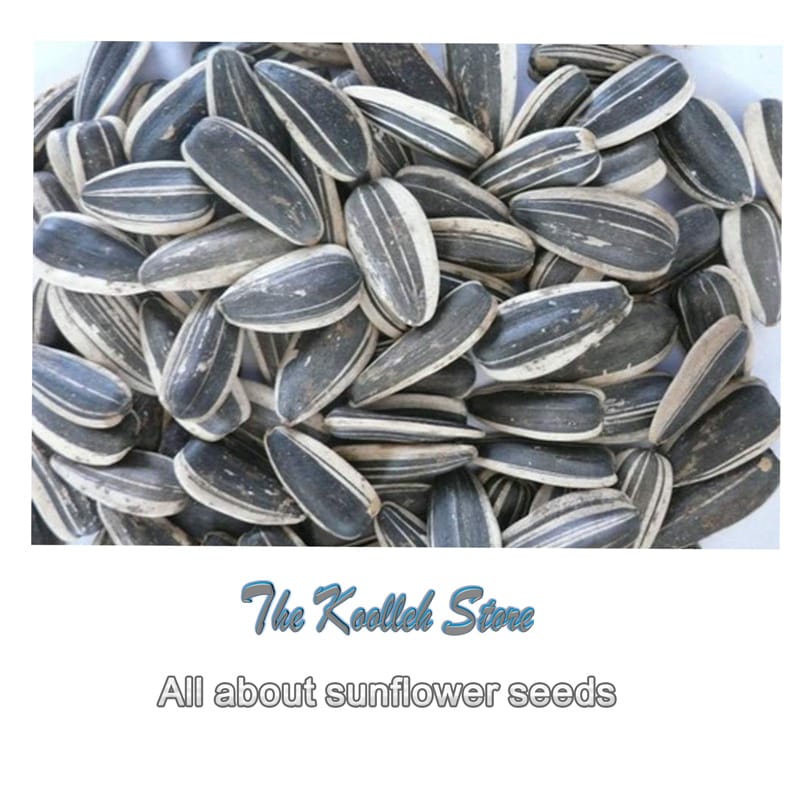All about sunflower seeds

Sunflower seeds are actually sunflower seeds. These seeds are harvested from a large flower that can be about 30 cm in diameter. One sunflower alone can contain 2000 eggs.
There are two types of sunflower. One is for the seeds you eat and the other is most commonly found in the fields, growing for oil. The types of eggs that are extracted are found in both black and white skin types, but the sunflower oil comes from the black skin type.
Sunflower seeds are smelled in different ways to get a better taste, smell and texture, though you can also buy them raw.
The Benefits and Properties of Seeds for Health
Eggs may help lower blood pressure, cholesterol and blood sugar because they contain vitamin E, magnesium, protein, linoleic acid and several other plant compounds. It can also have other health benefits:
Inflammation
While short-term inflammation is a natural immune response, chronic inflammation is a risk factor for many chronic diseases. For example, elevated blood levels of inflammatory reactive protein are associated with an increased risk of heart disease and type 2 diabetes.
In a study of more than 6,000 adults, people who consumed sunflower seeds or other seeds at least 5 times a week had a 32% lower protein response than those who did not eat. Vitamin E, flavonoids, and other herbal ingredients in sunflower seeds help reduce this inflammation.
Heart disease
Hypertension is a risk factor for heart disease that can lead to a heart attack or stroke. Seed compounds block an enzyme that disrupts blood vessels. As a result, it can help your blood vessels lower your blood pressure. Magnesium also helps lower blood pressure.
In addition, sunflower seeds are rich in unsaturated fatty acids, especially linoleic acid. Your body uses linoleic acid to make a compound like hormone that relaxes blood vessels and lowers blood pressure. It can also lower cholesterol.
In a 3-week study, women with type 2 diabetes who had 30 grams of sunflower seeds in their diet were able to lower their blood pressure by 5%, bad cholesterol by 9%, and triglyceride by 12%.
Numerous studies have shown that people who had the highest consumption of linoleic acid had a lower risk of heart disease than those who consumed less.
Diabetes and egg consumption
The effects of sunflower seeds on blood sugar and type 2 diabetes have been tested and promising in several studies, but further research is needed.
Studies show that people who consume 30 grams of sunflower seeds daily can reduce their fasting blood glucose by about 1% in six months. The hypoglycemic effects of the seeds can be due to the presence of chlorogenic acid.
Studies have also shown that adding eggs to foods such as bread can reduce the effect of carbohydrates on blood sugar. Grain protein and their fat reduce the release of carbohydrate sugar in the body.
Stool obstruction
Eating a lot of sunflower seeds at one time can sometimes lead to stool obstruction in children and adults. Eating an egg that has skin increases the likelihood that you may be eating it unusually and that it is too much for your stomach and your body cannot digest it.
This can cause problems with your bowel and your doctor may have to remove the obstruction with anesthesia and surgery.
In addition to constipation, you may have fluid excretion and experience pain, nausea, or other symptoms.
Allergy to seeds
Although allergic to sunflower seeds is relatively uncommon, there have been some reports. Reactions may include asthma, edema, itching, fever, skin lesions, ulcers, vomiting and anaphylaxis. This allergy is due to the protein in the seed, and sunflower seeds, popcorn seeds and raw can all cause this allergy.
Refined sunflower oil is likely to reduce these allergenic proteins, but in rare cases very sensitive individuals may also have reactions to this allergen. Sunflower seed allergies are more common in people who deal directly with them, such as farmers and breeders and those who feed the birds.
If you have a bird at home that gives you sunflower seeds, you may also be allergic. Especially children who are very young may be affected by their skin’s egg protein.
In addition to food allergies, some people may also experience allergies such as itching and inflammation.
Finally, sunflower seeds may break down quickly due to high fat content, so try to keep them in a cool, humid environment.
Sunflower seeds can both be a tasty snack and add to your main dishes.
They contain many nutrients and herbal ingredients and can be associated with inflammation, heart disease and type 2 diabetes.
However, they are high in calories and can lead to unwanted illnesses and complications if consumed excessively.
